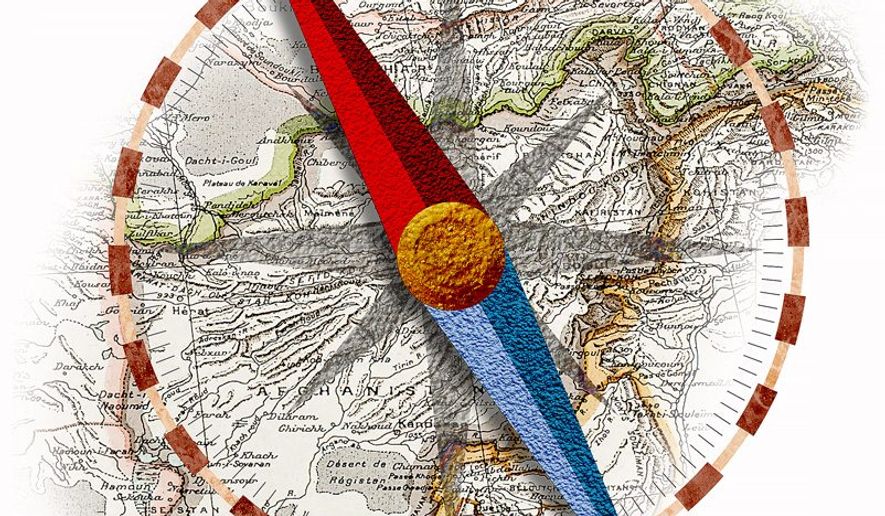OPINION:
After three years of legal wrangling, The Washington Post finally got the original documents from studies of lessons learned from the war in Afghanistan. In a wave of self-congratulatory backslapping, The Post is comparing the feat with the publication of the “Pentagon Papers” during the Vietnam War.
So far, what The Post has found is a glaring flash of the obvious. The U.S. government didn’t know what it was doing, and the ignorance was bipartisan. Two separate administrations got things wrong. But, like the government, The Post is capable of looking at the same raw data and drawing the wrong conclusions.
A case in point is one of the major conclusions drawn by The Post’s analysis, that being we didn’t know who we were fighting. Wrong, we knew — and know — exactly who we were fighting. After two decades, we know a lot about the Taliban.
We know how they fight, a lot about their organization, and even what motivates them. If they had renounced al Qaeda after 9/11, we probably wouldn’t be there. The fact that we can’t destroy them is due to our inability to deal with their center of gravity which is that portion of the civilian population that supports them. Those people are not buying what we are selling, and probably never will. What we have here is a failure of market analysis.
The people who support the Taliban are largely Pashtun tribesman in the rural interior of the country. Not all Pashtun fall into this category. Many of the key government leaders — including the Karzai family — are Pashtun. The rural elements we are talking about probably represent 30 to 40 percent of the population. Even at their lowest point in 2002, the Taliban were aided and abetted by rural Pashtun.
A majority of those don’t buy off on the rigid Talib interpretation of the Muslim religion, but they do believe in Pashtunwali (the code of the Pashtun) which includes a very strict view of the role of women in society and a rigid code of honor calling for the ruthless pursuit of vengeance when a family, clan or tribe member has been killed or wronged — even if that relative was in the wrong in the first place.
This makes it virtually impossible to win the proverbial “hearts and minds” of this key component of Taliban survival. The free stuff we’ve been offering to try to win these people over was not sufficient to induce them to stop supporting the Taliban, and probably never will be. As a civilian governance adviser in a remote Pashtun district of Northwest Afghanistan, I saw this time and again.
Until the Trump era, the Afghan War had two phases; these can roughly be categorized as Bush and Obama periods. The Bush phase concentrated on finding and killing terrorists, and the Taliban were lumped with al Qaeda as terrorists. The Obama phase concentrated on counterinsurgency which had worked passably well in Iraq.
In both cases the approach would not work on the rural Pashtun population. From the Bush era perspective, every Taliban killed created at least one — usually more — Taliban bent on revenge. This was true even if the new recruits didn’t buy off on Talib theology. Revenge was the motive.
The Obama era hearts and minds approach was doomed because the price for American free stuff was equal rights for women and accepting a corrupt central Afghan government judiciary over the rough but reasonably fair brand of Taliban style Sharia law. Crudely stated, the dogs didn’t like the Alpo we were trying to feed them. In rural Pashtun areas, the Taliban were the population and we were not willing to destroy the population in order to save it.
The Post study is getting one thing right, and the Trump approach seems to be edging toward it. Creating a centralized Afghan government was wrong. The answer is — and always has been — negotiating a peace that will do two things. It would bring the Taliban into the political system a legitimate party, and it would craft a one country-two systems approach that would allow Sharia law and secular justice systems to exist side-by-side with the local populace choosing which they prefer in provincial elections.
The present centralized system in which Kabul tries to impose its will on remote and largely inaccessible rural regions is unworkable given the primitive state of transportation and communications.
We don’t want foreign terrorists back in Afghanistan, the Taliban can’t take the urban areas, and the rural Pashtun don’t want to change. There is room for a negotiated settlement.
• Gary Anderson lectures in Alternative Analysis at the George Washington University’s Elliott School of International Affairs.




Please read our comment policy before commenting.